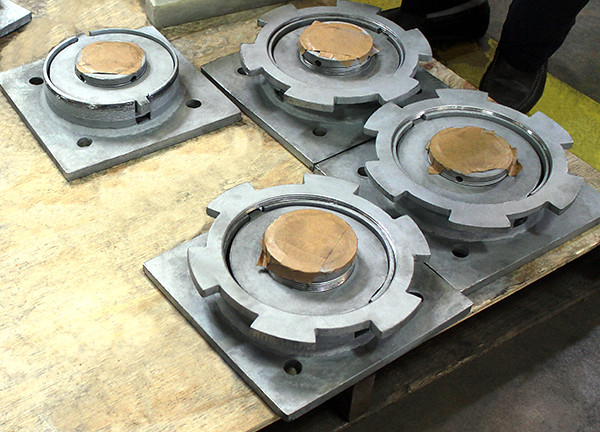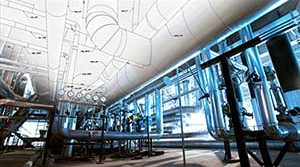| Type: | Compact Spring Supports |
| Material: | Carbon Steel w/ Hot-Dipped Galvanized (HDG) |
| Design: | 9,000 lb. Load | +/-0.125″ Vertical Movement |
| Testing: | Load Testing |
PT&P custom-designed 76 compact spring supports or “disc spring” supports for a major oil refinery. This type of spring supports is ideal for locating under equipment flanges to limit excessive loads on sensitive equipment. PT&P has supplied custom compact springs for over a decade as the industry leader in plants all over the world. Compact springs are used for small travel systems to prevent equipment failures, assure safe plant operations, and reduce operational costs. Such springs can support loads equal loads to conventional springs while using 50% less space. If not addressed, pipe strain can cause misalignment, thermal expansion, and pipe-lift off resulting in strain on expensive equipment. For example in a typical refinery, upwards of $15M a year is spent on pump repair alone due to pipe strain issues. Compact springs are used in systems to support Centrifugal pumps and compressors, air-cooled heat exchangers, vessels, and steam turbines while addressing regulatory codes for API, ASME, UBC, and government compliance for organizations such as OSHA, EPA, WISHA, etc.
The springs are stainless steel Belleville washers and the housing is fabricated from A-36 carbon steel with a hot-dipped galvanized finish to protect against corrosion. The assemblies are 3″ high, designed to support a 9,000 load and movement of +/-.125″ (upward). Each assembly underwent load testing before shipment. Compact springs are specifically designed to minimize excessive loads on process equipment by managing nozzle loads and the flange seal and can be installed directly under the equipment. Another benefit of compact springs is to address corrosive environments (saltwater, marine air, or chemicals) by manufacturing them with metals like stainless steel and/or using amorphous glass coatings making them impervious to corrosion.



